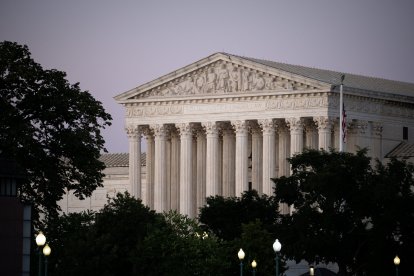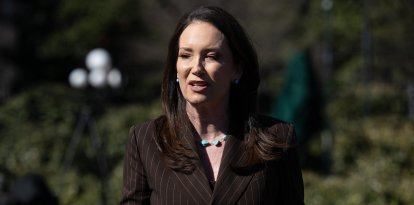Supreme Court limits power of federal agencies by striking down the 'Chevron doctrine'
The justices voted 6-3 to strike down a rule that gave the executive branch power to resolve ambiguities or loopholes in laws.

Supreme Court of Justice
On Friday, the Supreme Court limited the authority of federal agencies to enforce the laws they are supposed to implement.
The justices overturned a 1984 rule known as the "Chevron doctrine." This allowed federal agencies to interpret ambiguous laws or fill in legal gaps, provided their interpretations were "reasonable" and recognized by the courts.
"Chevron is overruled. Courts must exercise their independent judgment in deciding whether an agency has acted within its statutory authority," the court stated in its ruling.
John Roberts wrote that in "overruling Chevron, though, the Court does not call into question prior cases that relied on the Chevron framework." This means that previous rulings remain unaffected. However, the ruling is expected to prompt new lawsuits challenging laws passed in recent decades under Chevron.
Critics of the Chevron doctrine argued that it transferred power from the Judiciary to the Executive Branch by allowing federal agencies to interpret laws within their purview. They contended that this enabled agencies to effectively alter the meaning of laws, with interprepations potentially varying based on the current agency head. As a result, agencies were seen as formulating policy, thereby encroaching on the legislative powers of Congress.
In Chevron's defense, the government claimed that the doctrine itself prevented the Executive from taking authority away from the Legislature and that it only allowed the agencies to decide on laws previously passed by Congress. They also argued that the judges were not experts in the specific issues they had to interpret. Justice Elena Kagan, who voted with the minority, agreed.
Kagan also accused her peers of having "grasps for power" by assuming roles that she believes belong to other agencies. She claims that Friday's decision put courts at the heart of administrative decisions because regulatory statutes often have loopholes and ambiguities, "and often of great import." Judges would find themselves making critical decisions on issues like artificial intelligence, the transportation system or "climate change or other environmental challenges."
Kagan also accused her peers of deciding the case based on their belief that the Chevron doctrine improperly empowered agencies. "Today’s majority," she claimed, "has lost sight of its proper role."
The case that overturned the law
The plaintiffs specifically targeted the National Marine Fisheries Service, alleging it overstepped in monitoring ocean resources.
Despite previous ruling favoring the fisheries, the Supreme Court's decision now resolves the dispute in favor of the fishing vessel operators.
First reactions
The justices' vote on the Chevron doctrine was split along ideological lines, resulting in a final ruling of 6-3. Similarly, reactions to the ruling were starkly divided: Republicans were pleased while Democrats were surprised and critical.
RECOMMENDATION





















